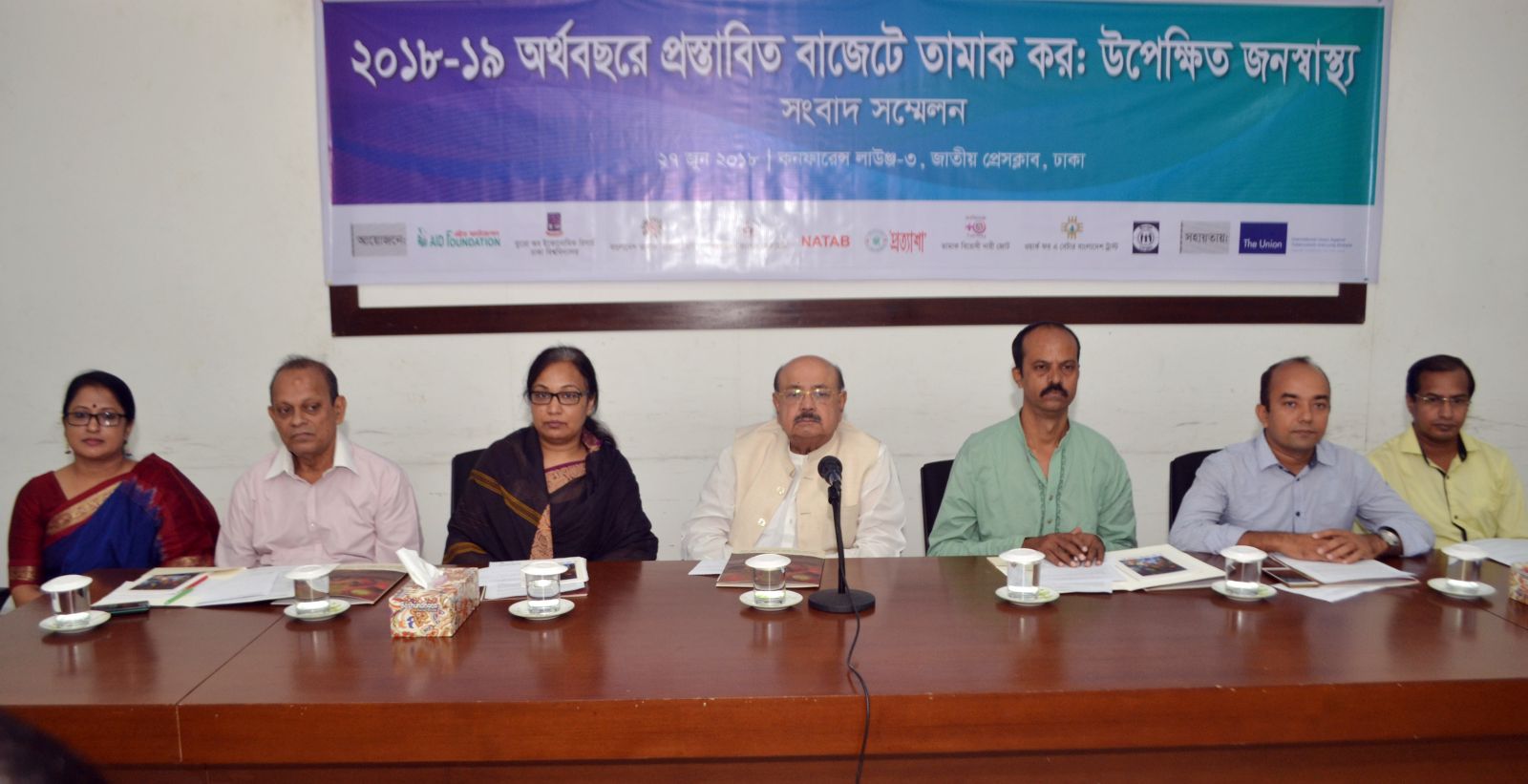
Though Finance Minister's budget speech speaks about taking steps to build a tobacco-free Bangladesh in future, but there is no reflection of that in the proposed budget. Rather, the tobacco industries’ interests have been protected by ignoring public health. In the proposed budget, retail price level of bidi has been remained unchanged. This will encourage the poor populations in using tobacco products. Keeping the prices of higher tier cigarettes and supplementary duty unchanged, business opportunities has been created for multinational cigarette company. On the other side, the price of lower tier cigarettes has been increased slightly, which will play poor role in reducing demand. The reduction of the export tariff of tobacco products is contrary to the international commitment of Bangladesh to protect public health. In a press conference at National Press Club, anti tobacco activists demanded this.
On 27 June 2018, with the support of The Union under Bloomberg Initiative, Bureau of Economic Research at Dhaka University, Bangladesh Cancer Society, NATAB, AID Foundation, YPSA, Anti-tobacco Women Alliance, Prottasha Anti-Drug Club, Bangladesh Anti-tobacco Alliance and Work for a Better Bangladesh (WBB) Trust jointly organized the press conference on “Tobacco tax in the proposed budget: public health ignored”.
Focul Person of Bureau of Economic Research at Dhaka University Professor Dr. Rumana Huq presented the key paper in the press conference and President of NATAB and advisor of BATA Mozaffar Hossain Poltu, Secretary General of Prottasha Anti-Drug Club Helal Ahmed, Vice-president of Bangladesh Cancer Society Sultan Mahmudur Rahman, Program Manager of YPSA Nazmul Haider, Director of WBB Trust Gaous Pearee and Advocacy Officer of AID Foundation Abu Naser Anik was present and discussed.
Speakers said, “Considering public health every year, on behalf of various organizations across the country working on tobacco control raises demand to impose higher tax on tobacco products. Policy makers involved in tax increases give assurance but the scenario of the proposed budget is totally different. To encourage the export of processed tobacco, budget proposed to withdraw 25% customs duties on tobacco exports which will encourage tobacco farming. This will also reduce the amount of land for cereal production. While work is on progress worldwide on tobacco control to achieve the global commitment to reduce tobacco use by 30%, in such a situation such steps are not acceptable that encourage tobacco production in Bangladesh. Such step is against the commitment of FCTC implementation.”
In the press conference, some recommendations given for taking effective steps in tobacco control for the public interest to ensure Prime Minister’s commitment of making Tobacco Free Bangladesh by 2040, to achieve the target of SDG and for the sake of public health development.

